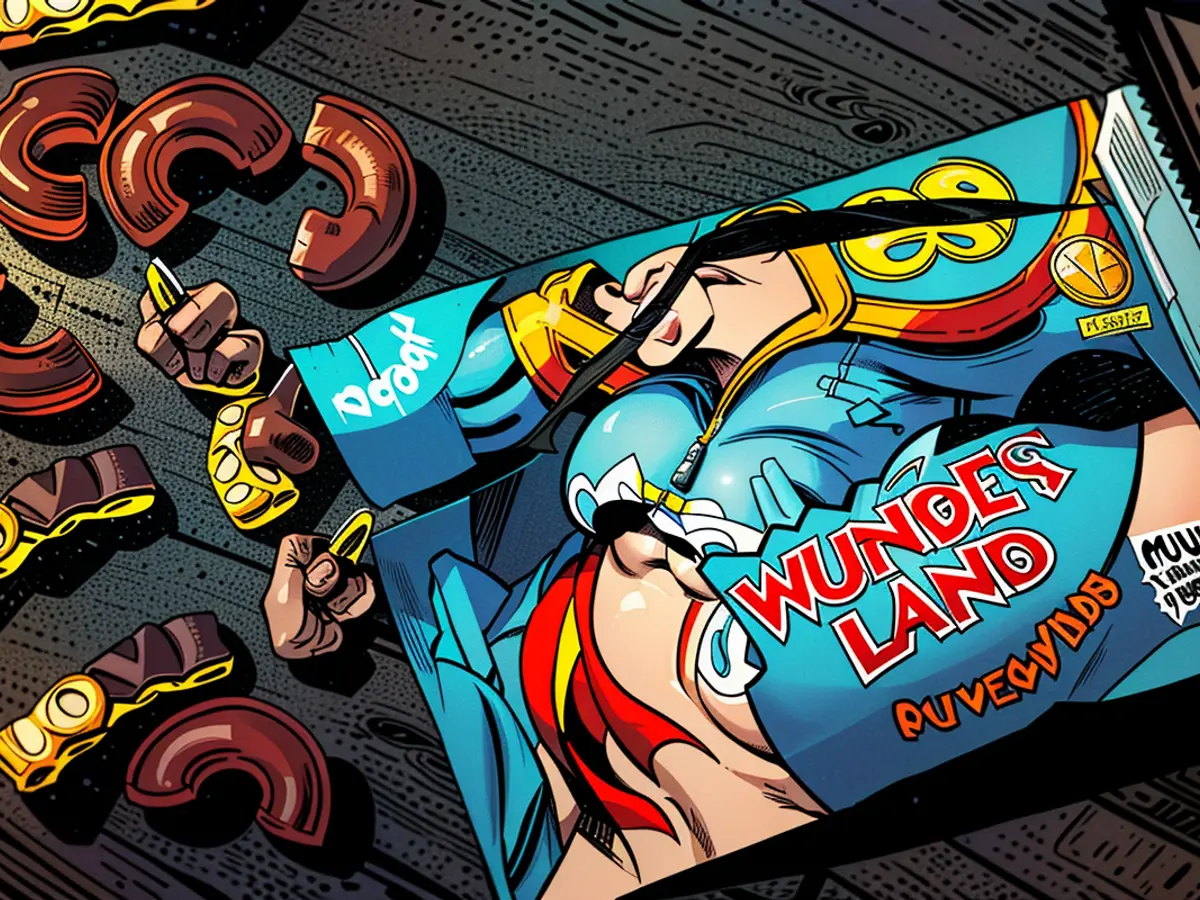BGH ruling - Katjes may not simply advertise with the label "climate neutral"
Customers are becoming more environmentally conscious, and companies are responding. Many advertise that their products are "climate neutral." This rarely means that they are actually produced in a climate-neutral way, but rather that the companies are offsetting emissions somewhere else or doing something else for the environment. The Federal Court of Justice (BGH) in Karlsruhe has therefore tightened the requirements for such environmental advertising. Anyone who wants to advertise with ambiguous terms like "climate neutral" must explain in the advertising itself what exactly is behind it.
In this specific case, the Competition Central had sued the licorice manufacturer Katjes because the company had advertised in a food industry magazine that all its products were climate neutral produced. The production itself is not emission-free, and the company supports climate protection projects through an environmental consultant. The Competition Central considered the advertising to be misleading and therefore filed a lawsuit. The consumer had been deprived of important information.
Meaning of "climate neutral"
The Competition Central had no success with the first lawsuit. The Higher Regional Court of Düsseldorf argued that consumers understand the term "climate neutral" in the sense of a balanced CO2 balance. They knew that this could also be achieved through compensation measures. From the perspective of the Higher Regional Court, it was sufficient to refer to more detailed information via a QR code. The Competition Central was not satisfied with this and therefore appealed to the Federal Court of Justice.
The highest German civil court ruled in favor of the Competition Central and ordered Katjes to cease the advertising. The readers of the trade journal could – just like consumers – understand the term "climate neutral" both as a reduction and as a compensation of emissions. The advertising was therefore misleading.
Significance for competition
An explanation of the term "climate neutral" was necessary according to the Federal Court of Justice, above all because the avoidance of greenhouse gas emissions and the compensation of these emissions are not equally important for climate protection. The avoidance is more important for climate protection than the compensation of already caused CO2 emissions.
The Competition Central was satisfied with the judgment: "Companies that invest massively in the conversion of the entire logistics or production, energy supply, etc., they have massive investments," said Business Manager Reiner Münker. "They feel disadvantaged in competition when someone promises the same thing with a shining term, although they do not do it."
Not only Katjes uses "climate neutral"
Katjes had already adjusted to stricter regulations before the judgment. The sweets manufacturer had used the term "climate neutral" in the past because one wanted to reduce the emissions in production itself, but also because the company made significant compensation payments in the seven-figure range, said Katjes spokesman Pascal Bua. According to previous legal opinion, this was allowed.
Companies using the term "climate neutral" lightly are not just Katjes. In an analysis of 87 products with claims about climate protection last year, the Consumer Center Thüringen found that the term "climate neutral" was used more frequently than any other. However, in one out of every three products examined, there were no further explanations of the claims on the packaging. Clear indicators were only found in one out of every four packagings in the direct vicinity of the statement.
EU working on regulations against greenwashing
Stricter regulations for green marketing claims are also being worked on at the EU level. For example, the Environmental Ministers and Ministers of the EU countries agreed on regulations for voluntary statements by companies regarding the environmental or climate friendliness of their products last week. Accordingly, companies should use clear criteria and the latest scientific knowledge to back up their claims and labels. It should also be clear what the environmental statements refer to, such as durability or recyclability. The countries now need to negotiate a compromise with the European Parliament.
- The Federal Court of Justice has ruled that the use of the term "climate neutral" must be explicitly explained, as consumers understand it to mean a balanced CO2 balance, which can be achieved through compensation measures.
- Companies like Katjes, who use the term "climate neutral" without clear explanations of their compensation measures, can be perceived as misleading and were ordered by the Federal Court of Justice to cease such advertising.
- The judgment by the Federal Court of Justice emphasizes the significance of clear and informative advertising regarding climate neutral products, as it highlights the importance of emissions avoidance over compensation for already caused CO2 emissions.








